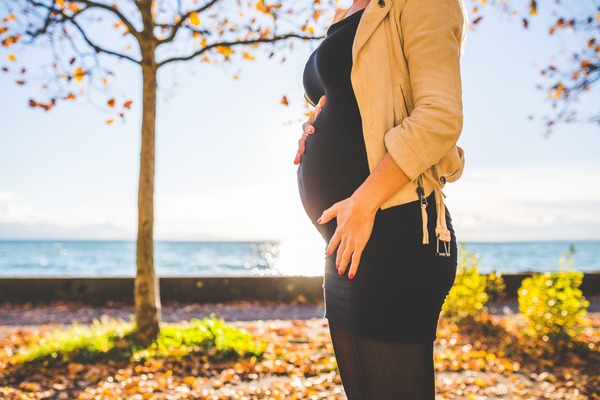

What Not to Eat during Pregnancy: 6 Foods You Must Avoid

Pregnancy is an extremely vital and overwhelming phase in a woman’s life. While a woman prepares physically and mentally to adopt the role of a mother, it is highly important to keep the body and mind ready for the change. This can be done only by being aware of the changes one’s body undergoes and adapting food habits and a general lifestyle that complements this change. A woman’s health defines many important aspects of the baby’s health. Hence, it is highly imperative to watch one’s diet if pregnant. While there are a number of food varieties that are shown to enable a healthy pregnancy, there are some items best avoided during this time. Here is a list of 6 foods to be avoided:
1. Unprocessed and Raw Seafood
While this category of food is often avoided by all, seafood, particularly those rich in mercury, have caused detrimental effects on the growth of the baby. The Food and Drug Association (FDA) encourages to avoid fish like king mackerel, shark and bigeye tuna. Catfish, cod, and herring are much safer alternative sources of protein. Also, avoid raw seafood like sushi and consume only safe and cooked seafood. Ensure that the procured fish is from areas with clean water as the toxic chemicals can affect the development of the nervous system of the baby.
2. Excess Caffeine
The research around caffeine consumption during pregnancy has multiple conflicting views. In this scenario, it is best to keep an eye on one’s intake of caffeinated products. Consume caffeine and related products in a minimal amount. Try to consume freshly ground coffee and do not have more than 300mg of caffeine per day - which is about two cups of coffee. Older research suggests that coffee could lead to low birth weight of the baby.
3. Unpasteurized Products
While you do not have to completely stop your intake of cheese and other dairy products, avoid unpasteurized and raw cheese. Research from the NCBI suggests that these products contain a lot of bacteria which can lead to harmful and even life-threatening effects on the baby. Avoid soft cheeses unless they are clearly labeled as pasteurized. Pasteurized milk provides a very safe alternative and is extremely healthy for the mother and baby.
4. Avoid Alcohol
This is no surprise addition to the list - alcohol is known to cause FASD or Fetal Alcohol Syndrome Disorders. These are a series of disorders caused due to consumption of alcohol where it passes on to the baby through the umbilical cord. FASD manifests through multiple symptoms like abnormal facial features, small head size, low body weight, hyperactive behavior, difficulty in school and learning disabilities, vision and hearing problems, as well as problems with the hearts and kidneys. Clearly, it is imperative that you avoid alcohol at all costs. If you have consumed alcohol before, consult your doctor immediately. The neural development of a baby happens over months and there is still time to rectify the situation.
5. Avoid Raw Meats
Pregnancy increases the probability of bacterial food poisoning, hence, it is best to avoid raw and unprocessed meats during this period. Hot dogs and luncheon meats are common sources of bacterial illness due to the presence of a bacteria listeria. Women who are pregnant are most likely to contract this bacteria due to changes in the hormone and immune system, so cooking these meats properly or better avoiding them during pregnancy is necessary. Raw eggs and poultry can be very harmful too. Make sure that all non-vegetarian food is sourced from safe and reliable places and cooked properly.
6. Avoid Unwashed Fruits and Vegetables
While fruits and vegetables are considered the best sources of nutrients, it is important to consume them the right way. Wash all of the food thoroughly to remove any harmful bacteria. Avoid raw sprouts like radish and mung bean as they are also strong sources of bacteria. If at all you have to consume sprouts, take extra care to ensure they are cooked properly. Another step to take towards eating healthy is to avoid processed foods. It is highly recommended to consume whole foods as they are rich in nutrients. Processed food products are not rich in nutrients and merely increases calorie and sugar intake, which is quite unhealthy. Avoid junk food as it is generally not healthy and does not help the growth of the baby in any way. In fact, this can lead to gestational diabetes and cause unnecessary complications in the delivery of the baby. The baby could also be born overweight which could carry on to overweight and obesity as an adult. Consume whole-grain food which is rich in folic acid, as this helps in the growth of the baby. Some key and healthy sources of protein are eggs, beans, and salmon; ensure that you cook all these foods properly to avoid indigestion, food poisoning or other complications. Berries and other citrus fruits in the right amount provide an adequate amount of vitamin C for the baby. Ensure that you stay away from allergens by noting down your reactions and consulting a doctor. Pregnancy is a period of happiness and joy, so take care of yourself and your little one’s health by watching your diet!

















